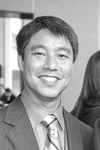
David Inoue
In San Francisco’s Japantown, longstanding anchor business the Buchanan Hotel is being proposed for conversion to permanent supportive housing for formerly homeless people. Just outside the Minidoka national historic site, there is a proposal to erect what will be one of the world’s largest wind farms in the world, with 400 turbines each being 740 feet tall.
No one can argue that we don’t need more housing options for homeless people, especially in San Francisco, where affordable housing is increasingly difficult to find, and similarly, the future of our lives is dependent upon increasing availability of clean energy such as the 1,000 megawatts that will be produced in Idaho. The question is whether these things must come at a cost to our community.
Japantown has been struggling through the pandemic with the reduction in tourism dollars and business so dependent upon in-person patronage. San Francisco Japantown is one of the only three remaining historic Japantowns, and this proposal can endanger it.
The Buchanan Hotel is one of only two hotels in Japantown. The City of San Francisco years ago forced much of the Nikkei residential community out of the area. What was left is a business district dependent upon the Japanese community to come in from other areas or the tourism business that stays at the Buchanan or the Kabuki, Japantown’s other hotel.
Similarly in Idaho, the Bureau of Land Management in the Department of the Interior is soliciting public input on the proposal to construct what will be one of the world’s largest wind farms.
The farm would almost directly abut the Minidoka National Historic Site, where over 9,000 Japanese Americans were incarcerated during World War II. For those 9,000 and their families, this land is considered sacred, the site where their very humanity was denied, and it needs to be memorialized appropriately.
The last thing we want to be considered are NIMBY’s (Not In My Back Yard), but it is too often that vulnerable communities or shared goods are pitted against one another. It is often our communities that are sacrificed in the name of economic development.
The more stable franchise restaurant replaces the family run place that has existed for decades or infrastructure improvements like highways that are needed for the “greater good” of improved transportation but run directly through and tear apart minority communities.
This is our opportunity to speak out that these things are needed. We absolutely need to build more housing for homeless people. I know this well from having worked in the homeless field for 10 years, including supervising a permanent supportive housing facility and expanding that program to a second facility.
I understand the need for renewable energy as well, having recently converted my own home to solar power. But we also must recognize the importance of our community’s history and how that history is intertwined with physical place.
For the time, it seems that the City of San Francisco has reconsidered the Buchanan site for permanent supportive housing and is looking at other options, but that doesn’t mean that the fight to preserve Japantown is over. Businesses there continue to struggle as Covid has kept regular patrons away, and tourism has yet to rebound.
If you want to take action on Minidoka, you have until Sept. 20 to submit your comments and ask to be a consulting party. For more information on how to take action, please visit https://jacl.org/minidoka-call-to-action.
When we must decide between two social goods, everyone loses. It is our responsibility to push those making the decisions to find alternatives that do not put vulnerable communities against one another.
It is not a sacrifice when only those incapable of sacrificing are making the concessions — that is exploitation. Stand up for Japantown and Minidoka, but also be sure to stand up for support services for homeless people and for renewable energy. These all are needed to ensure that we have a future that is inclusive and acknowledges all of our places, our past and our personhood.
David Inoue is executive director of the JACL. He is based in the organization’s Washington, D.C., office.



